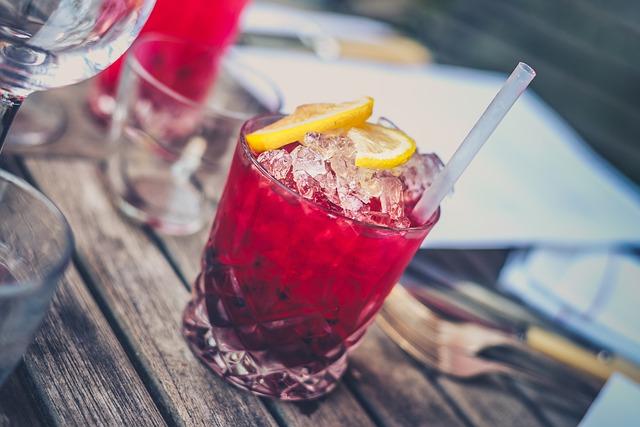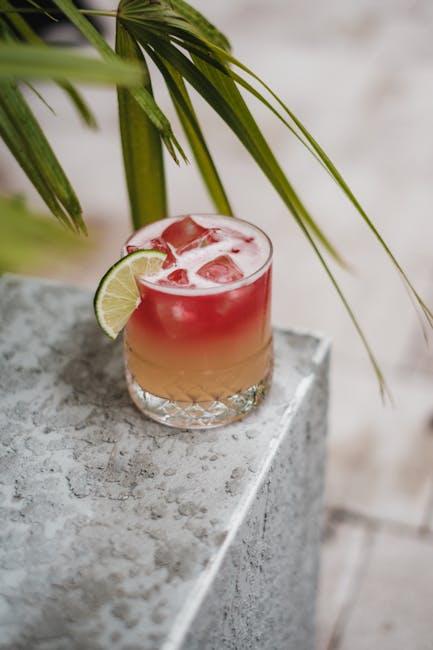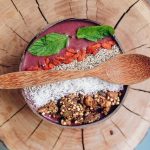In the bustling world of mixology, where vibrant concoctions are crafted to tantalize the taste buds and elevate social experiences, a quiet revolution is brewing. As more people seek balance in their lives, alcohol-free cocktails are emerging from the shadows of their spirited counterparts, offering an intriguing alternative. But beyond their allure of flavors and colors, a question bubbles to the surface: Are these alcohol-free creations better for our mental health? This exploration delves into the heart of the matter, unraveling the complex relationship between our favorite libations and the mind’s well-being. Join us on this journey as we sip, savor, and scrutinize the impact of these mindful mixtures on our mental landscape.
Exploring the Rise of Alcohol-Free Cocktails in Modern Culture
- Mindful Consumption: One of the most compelling reasons people are gravitating towards alcohol-free cocktails is the growing awareness around mental well-being. These innovative drinks offer a refreshing alternative that allows individuals to partake in social rituals without the potential negative impacts of alcohol on mental health. By choosing non-alcoholic options, individuals can maintain a clear mind, reduce anxiety, and avoid the emotional rollercoaster often associated with alcohol consumption.
- Cultural Shift: The rise of these beverages also signifies a broader cultural shift towards wellness and inclusivity. The burgeoning market for alcohol-free cocktails caters to a diverse range of preferences, encouraging a more inclusive social environment where everyone can feel comfortable. This shift not only supports mental health but also aligns with a growing desire for authenticity and conscious living, offering an opportunity to enjoy the art of mixology without compromising one’s mental peace.

Understanding the Mental Health Impacts of Alcohol Consumption
In today’s fast-paced world, where stress often becomes a constant companion, the role of alcohol in mental health is being scrutinized more than ever. While a glass of wine or a cocktail might seem like a quick fix to unwind, the long-term mental health effects of alcohol consumption can be significant. Studies have shown that excessive drinking can lead to mental health issues such as anxiety, depression, and even cognitive impairments. This has led many to explore alcohol-free alternatives, which not only provide the social experience of drinking but may also support better mental well-being.
- Reduced Anxiety and Stress: Alcohol-free cocktails allow individuals to enjoy the social aspect of drinking without the anxiety-inducing aftereffects of alcohol.
- Better Sleep Quality: Unlike their alcoholic counterparts, alcohol-free options do not interfere with sleep cycles, potentially leading to improved mental health.
- Enhanced Cognitive Function: By avoiding alcohol, individuals might experience improved concentration and memory retention.
- No Hangover Effects: Enjoying alcohol-free beverages eliminates the risk of hangovers, which can negatively impact mood and productivity.
Choosing alcohol-free cocktails might be a small step, but it can be a significant move towards maintaining mental clarity and emotional stability. As awareness grows, these alternatives are not just seen as substitutes but as choices that align with a healthier lifestyle.
Unpacking the Benefits of Alcohol-Free Alternatives for Emotional Well-being
In recent years, the rise of alcohol-free alternatives has been more than just a trend—it’s become a lifestyle choice for many seeking to nurture their emotional well-being. These beverages provide a refreshing option for those who wish to enjoy the social aspects of drinking without the potential mental health drawbacks associated with alcohol consumption. Alcohol-free cocktails, often crafted with a mix of botanicals, herbs, and fruits, offer a sensory experience that can enhance relaxation and mindfulness without the risk of hangovers or mood swings.
Choosing alcohol-free alternatives can lead to several mental health benefits, such as:
- Improved Sleep Quality: Avoiding alcohol can lead to more restful and uninterrupted sleep, which is crucial for maintaining a balanced mood and cognitive function.
- Enhanced Emotional Regulation: Without the depressant effects of alcohol, individuals may find it easier to manage stress and anxiety.
- Increased Social Confidence: Enjoying a flavorful, non-alcoholic beverage can empower those who are socially anxious, providing a means to engage in social settings without reliance on alcohol.
- Mental Clarity: Alcohol-free drinks can help maintain focus and mental acuity, leading to better decision-making and productivity.

Crafting Mindful Drinking Habits for a Balanced Lifestyle
Exploring the world of alcohol-free cocktails opens a door to a vibrant, flavorful universe that not only tantalizes the taste buds but also nurtures the mind. These innovative beverages, often referred to as mocktails, are crafted with a mix of fresh ingredients, herbs, and spices that can provide a sensory experience akin to their alcoholic counterparts. By embracing alcohol-free options, individuals may find a significant reduction in anxiety and stress, promoting a more serene mental landscape. This is because alcohol can sometimes exacerbate feelings of depression and anxiety, whereas non-alcoholic choices allow one to savor social moments without the mental fog.
Consider these potential benefits of opting for alcohol-free cocktails:
- Enhanced clarity and focus, free from the effects of alcohol.
- Improved sleep quality, as these drinks don’t disrupt sleep cycles.
- Opportunities to explore creative flavors and health-conscious ingredients.
While the experience is inherently personal, many find that reducing alcohol intake fosters a more balanced and mindful lifestyle, contributing to overall mental well-being. These thoughtfully crafted beverages offer a path to enjoy social interactions with a clear mind and a full heart.
To Conclude
In the ever-evolving landscape of wellness, the conversation around alcohol-free cocktails offers a refreshing twist on traditional social rituals. While the clink of glasses often signals camaraderie and celebration, it’s the contents that may be steering our mental compass. As we navigate the delicate dance between indulgence and mindfulness, alcohol-free cocktails emerge not merely as a substitute but as a statement—a choice that reflects a growing awareness of our mental well-being.
Ultimately, whether these vibrant concoctions hold the key to better mental health may depend on individual journeys and preferences. Yet, they undeniably invite us to pause, reflect, and sip with intention. As we raise our glasses to the possibilities, let us toast to a future where well-being is as much a part of our gatherings as the laughter and stories we share. Cheers to choices, and to the mindful paths we forge in pursuit of a balanced mind and a fulfilled life.




